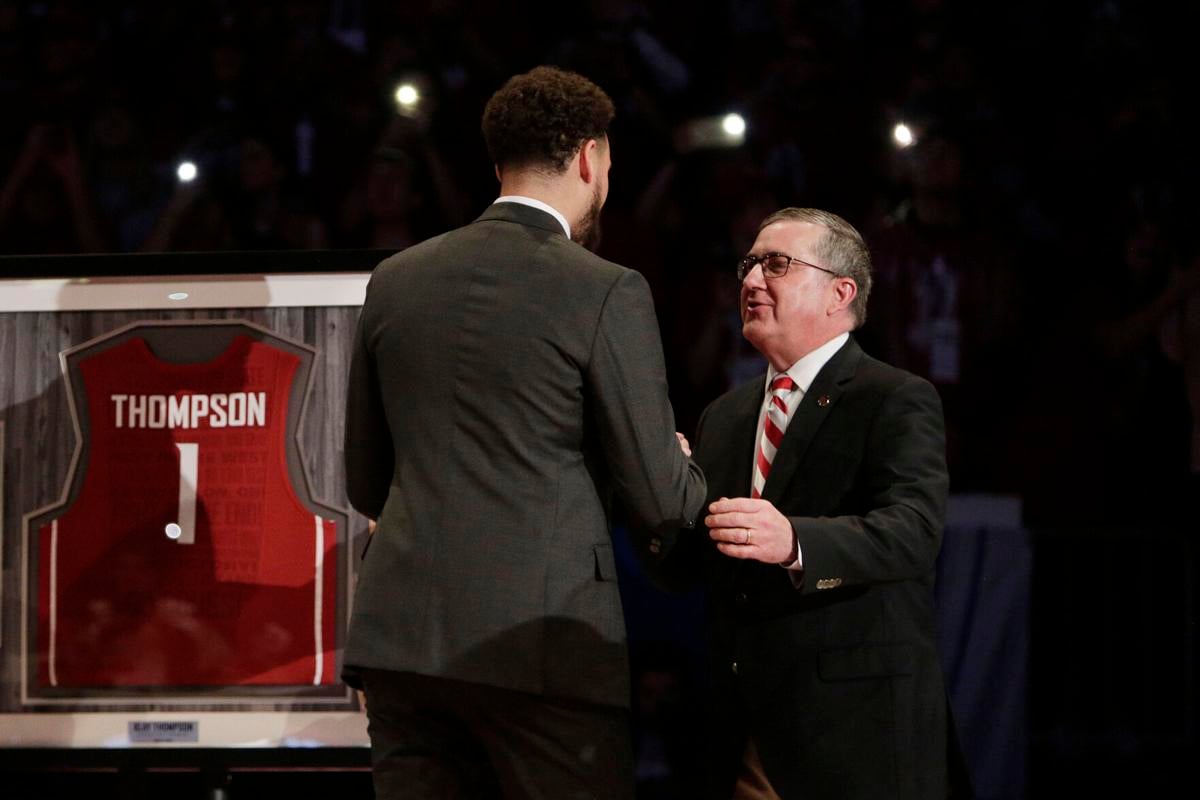Washington State’s athletic department was in the news for all the wrong reasons earlier this week when President Kirk Schulz announced cost-saving measures designed to offset a 2023 budget deficit resulting from “tremendous headwinds.”
The Cougars are implementing a temporary hiring freeze and have paused “non-essential travel, purchases and new professional development.”
It could have been worse. They could have hacked salaries, initiated furloughs or laid off employees. But the moves nonetheless reverberated through a conference that has faced years of fiscal “headwinds” — many of them due to a misguided media strategy.
Financial statements released last week show the Pac-12 once again trailed its Power Five peers in campus distributions. The conference sent an average of $37 million to each school for the 2022 fiscal year. The ACC and Big 12 paid out several million more, according to USA Today, while the SEC and Big Ten are on another level.
The news from Pullman provides reason to wonder about other Pac-12 athletic departments. Should we expect comparable cash squeezes across the footprint as the books close for 2023?
Not necessarily.
Schulz’s letter to the WSU community highlighted a series of challenges, some of which are specific to WSU.
Let’s dive in …
Schulz writes: “As has already been widely reported, each Pac‑12 university will see a significant decrease in revenue distribution. This decrease is a result of overpayments from one of the conference media partners that must be resolved.”
The Comcast overpayment fiasco is expected to result in lower payouts to the schools in both the 2023 and 2024 fiscal years.
Not only will Comcast withhold approximately $50 million to make up for a decade of excess payments to the Pac-12 Networks (2013-22), the company also will reduce the amount it was expected to pay over the final two years of the distribution contract (2023-24).
The total damage — the amount withheld and the amount reduced — reportedly will reach $5.7 million per school over the remainder of this fiscal year and 2024.
(USC and UCLA are on the hook just like everyone else.)
Schulz writes: “Relocation of the Pac‑12 headquarters out of San Francisco exceeded budget projections as well.”
The conference announced in January that it would relocate the Pac-12 Networks’ production studio to San Ramon, 35 miles east of downtown San Francisco.
Moving to the 42,000-square-foot facility proved more expensive than initially projected.
Exactly how much more expensive isn’t publicly known. But according to sources, there were unanticipated costs related to inflation and supply-chain issues — the latter made even worse by a challenging timeline.
The San Francisco lease signed by former commissioner Larry Scott expires this summer, one year before the end of the Pac-12 Networks’ contracts with Comcast, DISH and other carriers. That forced the conference to find a temporary home for the networks before knowing the future of the networks in the next media contract cycle.
According to multiple sources, the San Francisco lease included an option to renew for one year at current market rates. Had the conference simply opted to renew, the rental cost would have doubled to approximately $14 million, sources said.
However, the unanticipated expenses resulting from the relocation were covered by savings and other cost-cutting measures, to the point that their impact on 2023 campus payouts is believed to be minimal.
Overall, the move to San Ramon is expected to save the Pac-12 at least $5 million annually in occupancy costs.
Schulz writes: “Additionally, WSU projects that Cougar Athletics exceeded its expenditures for the year due to inadequate documentation of revenues and expenses.”
This is the key differentiator — the reason we believe WSU’s issues won’t spread to other schools. Put bluntly, the Cougars screwed up their accounting.
The details are unclear. We don’t know when the “inadequate documentation” was discovered or the degree of the mistake: Was it a $500,000 error … or a $5 million gaffe?

It’s unknown to what degree Washington State athletic director Pat Chun was involved in an accounting error that has impacted the overall school budget.
Ultimately, athletic director Pat Chun is responsible for the department. However, it’s worth noting that Brent Meyer, who was hired as WSU’s senior associate athletic director/CFO in October, is no longer with the school.
On Tuesday, industry website CollegeAD reported that Meyer has taken a job with Nebraska.
Schulz writes: “WSU has made steady progress toward balancing the athletics budget the past several years.”
The last discussion topic is actually the first sentence of Schulz’s letter — and another point of differentiation.
With the Cougars, two things are equally true:
1. They maximize resources as well as any athletic department in the conference. In particular, their success in football (seven consecutive bowl-eligible seasons, excluding 2020) far exceeds what could reasonably be expected given the budget and resources.
2. They are forever on the razor’s edge financially.
WSU is reportedly carrying accumulated debt of $75 million, much of it resulting from facility projects undertaken years ago. Additionally, the annual operating budget faces a variety of challenges, including the limited number of football ticket sales. (Martin Stadium has a capacity of just 32,952.)
The revenue shortfall resulting from the Comcast mess could change the color of budgets from black to red on several Pac-12 campuses. Or from light red to dark red. After all, few departments are flush with cash on an annual basis.
But one mess doesn’t portend multiple messes.
Combining their inherent challenges with the internal accounting mistake and, at this point, the Cougars’ situation appears unique.
Can Georgia make history and win its third consecutive title? The Bulldogs are the frontrunners, but Alabama and Ohio State aren’t far behind.






